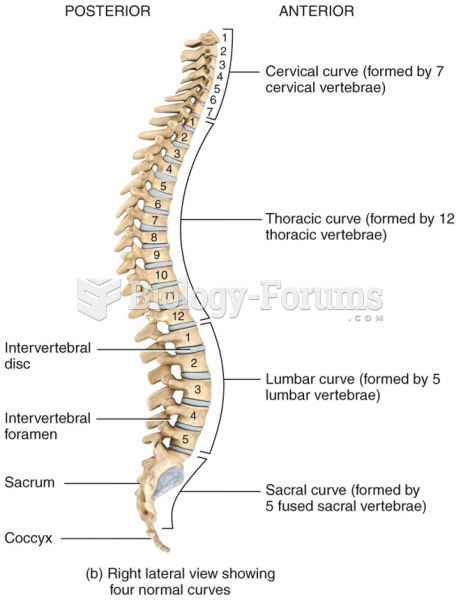Answer to Question 1
Correct Answer: 3
Rationale 1: Although above normal limits, a temperature of 100.1F does not put a client in immediate danger.
Rationale 2: Blood pressure of 146/92 does not put a client in immediate danger.
Rationale 3: Crackles are a sign of pulmonary edema, which can occur with the use of 3 normal saline solution. This assessment finding should be reported to the health care provider immediately.
Rationale 4: Rhonchi are generally auscultated in clients with inflammation of the large airway. This is not consistent with the use of 3 normal saline solution.
Global Rationale: Crackles are a sign of pulmonary edema, which can occur with the use of 3 normal saline solution. This assessment finding should be reported to the health care provider immediately. Although above normal limits, a temperature of 100.1F does not put a client in immediate danger. Blood pressure of 146/92 does not put a client in immediate danger. Rhonchi are generally auscultated in clients with inflammation of the large airway. This is not consistent with the use of 3 normal saline solution.
Answer to Question 2
Correct Answer: 3
Rationale 1: Potassium tablets should not be crushed, chewed, or sucked on. They can cause oral ulcerations.
Rationale 2: Large amounts of licorice can cause potassium depletion and sodium retention.
Rationale 3: Salt substitutes contain potassium and electrolytes other than sodium, and they could cause hyperkalemia.
Rationale 4: Unless otherwise instructed by the health care provider, avoid foods and drinks high in potassium, which could lead to excessive potassium levels.
Global Rationale: Salt substitutes contain potassium and electrolytes other than sodium, and they could cause hyperkalemia. Potassium tablets should not be crushed, chewed, or sucked on. They can cause oral ulcerations. Large amounts of licorice can cause potassium depletion and sodium retention. Unless otherwise instructed by the health care provider, avoid foods and drinks high in potassium, which could lead to excessive potassium levels.







